Iranian cinema has been a source of cultural wealth and a beacon of creativity within the global film community. Known for its deeply humanistic narratives, poetic visual style, and profound social commentary, it offers a distinct and vibrant cinematic language that has been internationally recognized and lauded.
Originating in the early 20th century, Iranian cinema has experienced several periods of transformation, each adding a new layer to its rich tapestry.
However, it was the cinematic renaissance that followed the Iranian Revolution of 1979, commonly referred to as the Iranian New Wave, that brought Iranian films to the forefront of world cinema.
Despite the challenging socio-political circumstances and stringent censorship regulations, Iranian filmmakers have consistently produced thought-provoking films that resonate with audiences worldwide.
Best Iranian Movies
The following list introduces some of the most remarkable films in Iranian cinema. Each of these films, with their compelling narratives and visual poetry, provide an insightful and enriching exploration of Iranian culture, society, and the human spirit.
These films highlight the power of Iranian cinema, demonstrating its capacity to bridge cultural divides and connect with audiences around the world.
1. About Elly (2009)
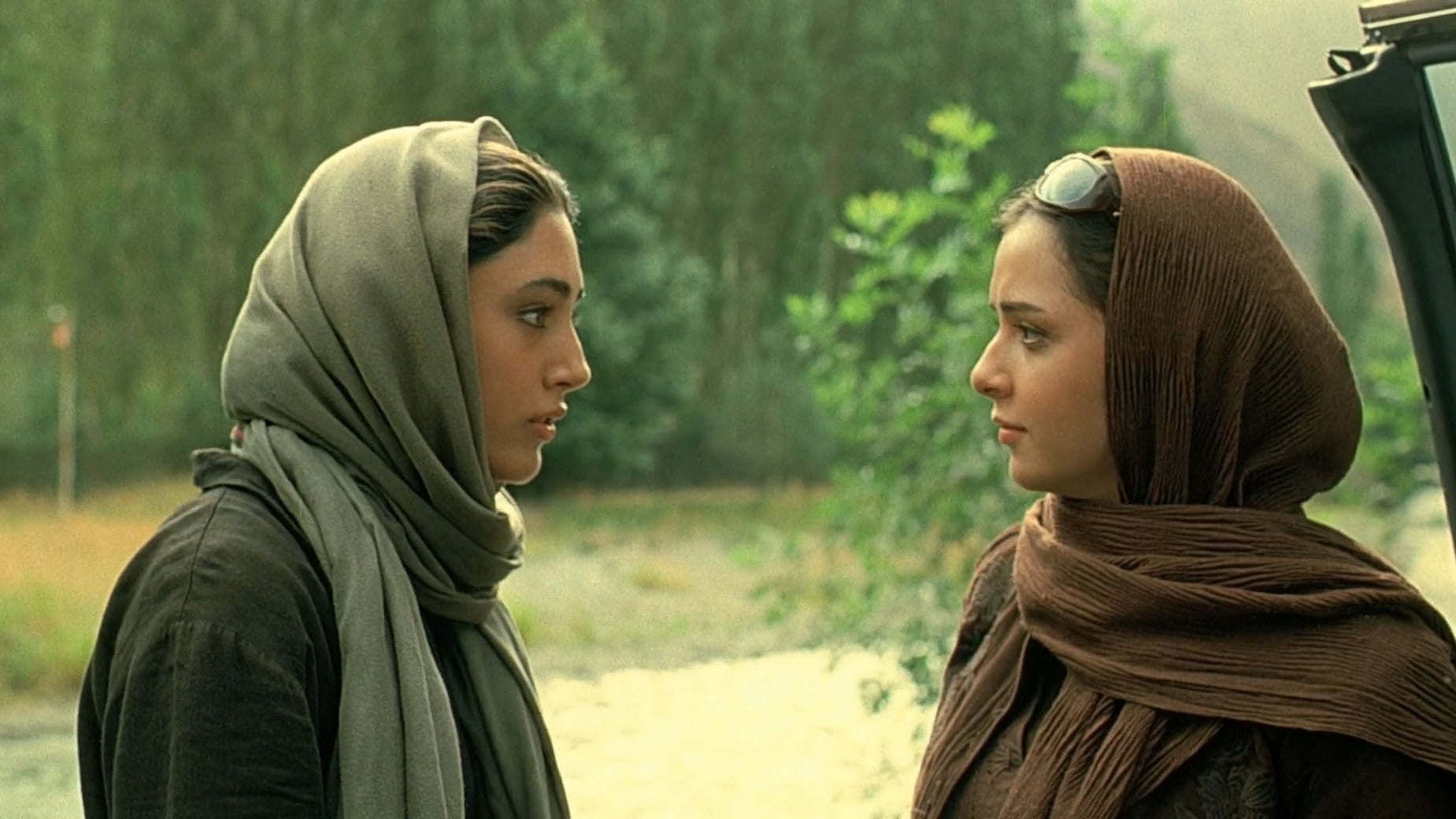

About Elly
2009 • 1h 59min • ★ 7.444/10 • Iran
Directed by: Asghar Farhadi
Cast: Golshifteh Farahani, Shahab Hosseini, Payman Maadi, Merila Zarei, Ahmad Mehranfar
The mysterious disappearance of a kindergarten teacher during a picnic in the north of Iran is followed by a series of misadventures for her fellow travelers.
“About Elly” (original title: “Darbareye Elly”) is an Iranian drama film directed by Asghar Farhadi and released in 2009. The film explores themes of deception, societal expectations, and the consequences of secrets.
The story revolves around a group of middle-class friends who embark on a beach getaway near Tehran. One of the group members, Sepideh, invites her daughter’s teacher, Elly, to join them with the intention of introducing her to a recently divorced friend, Ahmad.
However, an unexpected event occurs that disrupts the group dynamics and leads to a search for Elly when she goes missing.
As the search for Elly unfolds, secrets, lies, and hidden motives within the group gradually come to light. The film delves into the complexities of human relationships, social pressures, and the consequences of dishonesty.
“About Elly” received critical acclaim for its compelling storytelling, realistic performances, and examination of social dynamics in contemporary Iran.
It won several awards at international film festivals and brought international recognition to Asghar Farhadi as a prominent Iranian filmmaker.
The film is renowned for its masterful direction, engaging screenplay, and its exploration of moral dilemmas and the gray areas of human behavior. It offers a thought-provoking portrayal of interpersonal relationships and the complexities of truth and trust.
Please note that “About Elly” is in Persian with English subtitles and is available on various streaming platforms or through DVD releases with subtitles in different languages, depending on your region.
No products found.
2. Baran (2001)
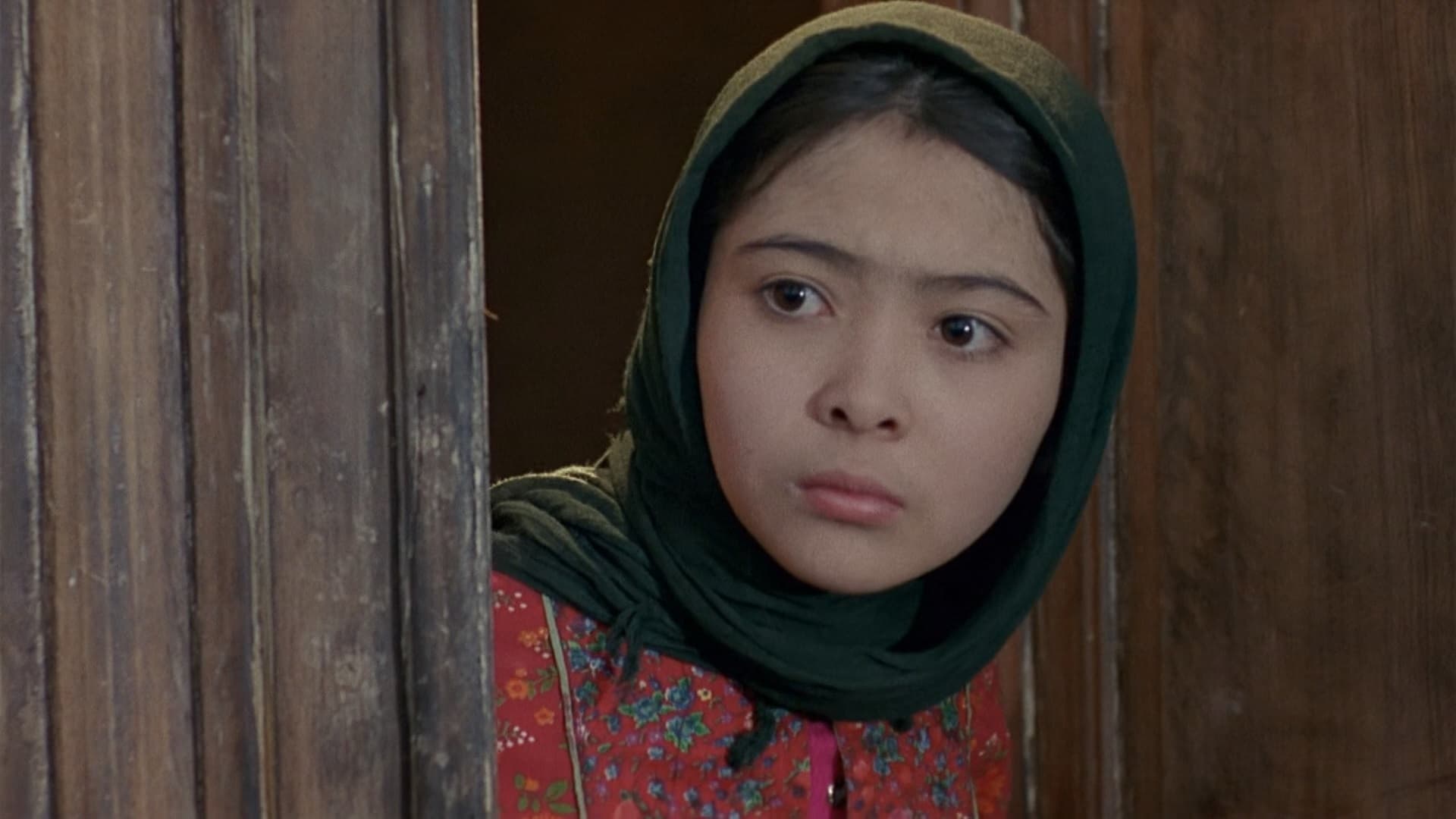
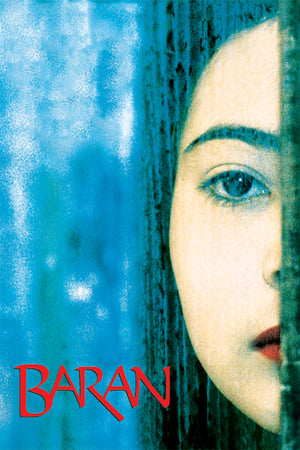
Baran
2001 • 1h 30min • ★ 7.512/10 • Iran
Directed by: Majid Majidi
Cast: Hossein Abedini, Zahra Bahrami, Reza Naji, Hossein Mahjoub, Abbas Rahimi
On a building site in present-day Tehran, Lateef, a 17-year-old Turkish worker is irresistibly drawn to Rahmat, a young Afghan worker. The revelation of Rahmat's secret changes both their lives.
“Baran” is a 2001 Iranian film directed by Majid Majidi. The film tells the story of an Afghan refugee named Lateef (played by Hossein Abedini) who works on a construction site in Tehran, Iran.
Lateef develops a fondness for a fellow worker named Baran (played by Zahra Bahrami), only to discover that Baran is not a young man, as he initially believed, but a young woman disguised as a boy in order to support her family.
As the narrative unfolds, Lateef becomes increasingly infatuated with Baran and tries to protect her secret.
The film explores themes of love, sacrifice, and the challenges faced by Afghan refugees in Iran. It portrays the hardships and prejudices faced by refugees and the compassion that can arise in unexpected circumstances.
For more about Iran cinema, you can check out our overview of the best films from Iran and our country-by-country exploration of global cinema.
“Baran” received critical acclaim for its emotional depth, engaging performances, and its portrayal of the plight of Afghan refugees in Iran.
The film’s visual storytelling, sensitive direction, and authentic depiction of the characters’ struggles have contributed to its international recognition.
Majid Majidi, the director of “Baran,” is known for his humanistic storytelling and his ability to capture the beauty in ordinary lives. The film showcases his distinctive style and his commitment to shedding light on social issues through compelling narratives.
- Amazon Prime Video (Video on Demand)
- Hossein Abedini, Zahra Bahrami, Mohammad Amir Naji (Actors)
- Majid Majidi (Director) - Majid Majidi (Writer) - Majid Majidi (Producer)
- (Playback Language)
- Audience Rating: PG (Parental Guidance Suggested)
3. Children of Heaven (1997)
“Children of Heaven” is a 1997 Iranian family drama film directed by Majid Majidi. The film tells a heartwarming story centered around a young brother and sister, Ali and Zahra, living in Tehran.
The film follows Ali (played by Amir Farrokh Hashemian), who accidentally loses his sister Zahra’s (played by Bahare Seddiqi) newly repaired shoes.
With their family facing financial struggles, the siblings devise a plan to share Ali’s sneakers without their parents finding out. Ali wears the shoes to school in the morning, and then Zahra rushes to wear them for her afternoon classes.
As they navigate their daily routines and school life, Ali and Zahra encounter various challenges, all the while trying to keep their secret hidden.
The film explores their bond, resilience, and the innocent world of children as they deal with issues of poverty, responsibility, and the value of kindness.
“Children of Heaven” gained critical acclaim for its poignant storytelling, strong performances, and its ability to evoke empathy and emotion from the audience.
The film beautifully captures the struggles and dreams of the young protagonists, painting a vivid picture of their everyday lives in a socially and economically complex environment.
Majid Majidi’s direction, coupled with Hossein Jafarian’s cinematography, creates a visually compelling experience. The film also highlights the cultural nuances and urban landscapes of Tehran, providing a glimpse into Iranian society and the lives of ordinary people.
“Children of Heaven” was well-received internationally and received numerous accolades, including an Academy Award nomination for Best Foreign Language Film.
It continues to be regarded as one of the most significant works of Iranian cinema, showcasing Majid Majidi’s storytelling prowess and his ability to touch hearts with a simple yet powerful narrative.
- Amazon Prime Video (Video on Demand)
- Amir naji, Mir Farrokh Hashemian, Bahare Seddiqi (Actors)
- Majid Majidi (Director) - Majid Majidi (Writer) - Amir Esfandiari (Producer)
- Audience Rating: PG (Parental Guidance Suggested)
4. Closed Curtain (2013)
“Closed Curtain” is a 2013 Iranian drama film directed by Jafar Panahi and Kambozia Partovi. The film explores themes of creativity, censorship, and isolation, all of which are deeply tied to the experiences of Jafar Panahi, the co-director.
The story revolves around a man named Reza, played by Kambozia Partovi, who takes refuge in a secluded beach house with his dog. Reza tries to isolate himself from the outside world, drawing the curtains closed and shutting himself off from society.
However, his solitude is disrupted when a young woman on the run enters the house. As they navigate their situation together, the film raises questions about freedom of expression, the consequences of artistic repression, and the power of storytelling.
“Closed Curtain” is notable for its unique blend of fiction and reality. Jafar Panahi, who is known for his previous works challenging the Iranian government’s restrictions on filmmaking, was under house arrest at the time of production.
The film serves as a commentary on Panahi’s own experiences with censorship and the difficulties faced by Iranian filmmakers in expressing themselves.
Despite facing significant obstacles, Jafar Panahi continues to create films that resonate both within Iran and internationally.
His works have received critical acclaim and numerous awards, solidifying his reputation as a prominent figure in contemporary Iranian cinema.
“Closed Curtain” is a poignant and thought-provoking film that reflects Panahi’s unwavering commitment to the art of cinema and his determination to shed light on the realities of life in Iran.
- Amazon Prime Video (Video on Demand)
- Kambuzia Partovi, Maryam Moqadam, Hadi Saeedi (Actors)
- Jafar Panahi (Director) - Jafar Panahi (Writer) - Jafar Panahi (Producer)
- (Playback Language)
- Audience Rating: NR (Not Rated)
5. Close-Up (1990)
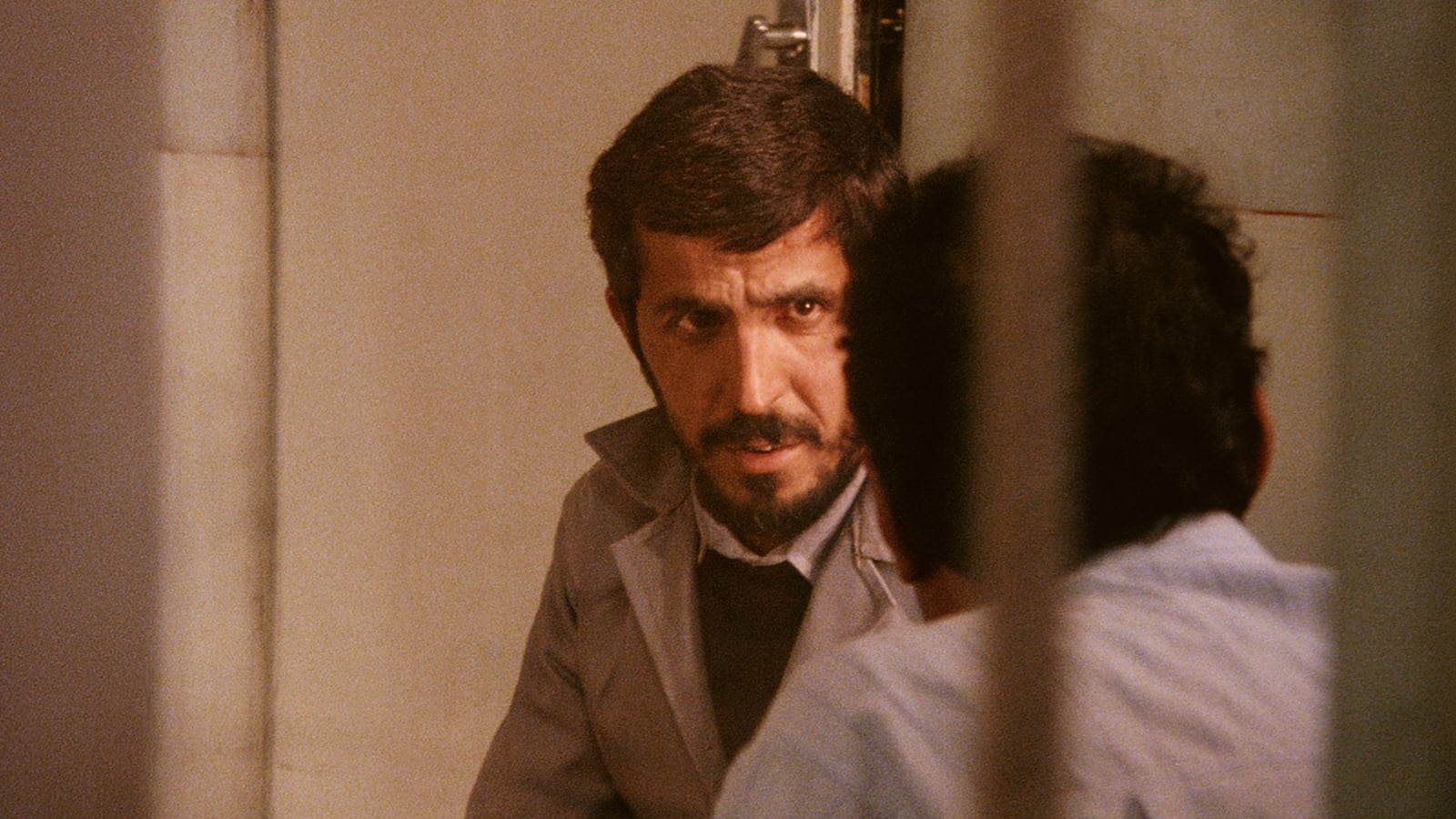
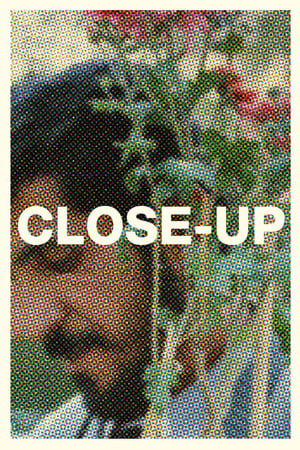
Close-Up
A real-life situation based on a real incident in actual locations with actual people involved
1990 • 1h 38min • ★ 7.9/10 • Iran
Directed by: Abbas Kiarostami
Cast: Hossain Sabzian, Monoochehr Ahankhah, Mahrokh Ahankhah, Abolfazl Ahankhah, Mehrdad Ahankhah
This fiction-documentary hybrid uses a sensational real-life event—the arrest of a young man on charges that he fraudulently impersonated the well-known filmmaker Mohsen Makhmalbaf—as the basis for a stunning, multilayered investigation into movies, identity, artistic creation, and existence, in which the real people from the case play themselves.
“Close-Up” is a 1990 Iranian docudrama film directed by Abbas Kiarostami. The film blurs the line between documentary and fiction by reconstructing a true incident that occurred in Tehran in the 1980s.
“Close-Up” tells the story of Hossain Sabzian, a man who impersonates acclaimed Iranian filmmaker Mohsen Makhmalbaf and befriends a family under false pretenses.
The film captures Sabzian’s trial and includes real courtroom footage, as well as interviews with the people involved in the case, including Sabzian himself and the family he deceived.
The film explores themes of identity, art, truth, and the power of cinema. It raises questions about the blurred boundaries between reality and fiction, the role of storytelling in people’s lives, and the impact of cinema on individuals and society.
“Close-Up” is regarded as a seminal work in Iranian cinema and has been highly acclaimed both domestically and internationally for its innovative approach and profound exploration of human nature and the nature of cinema itself.
Please note that my knowledge is based on information available up until September 2021, and there may have been subsequent developments or details related to “Close-Up” that I’m unaware of.
- Amazon Prime Video (Video on Demand)
- Hosein Sabzian, Hassan Farazmand, Mehrdad Ahankhah (Actors)
- Abbas Kiarostami (Director) - Abbas Kiarostami (Writer) - Hassan Agha Karimi (Producer)
- (Playback Language)
- Audience Rating: NR (Not Rated)
6. The Color of Paradise (1999)
“The Color of Paradise” is an Iranian film directed by Majid Majidi and released in 1999. The original title of the film is “Rang-e Khoda.” It is a critically acclaimed and internationally recognized work from Iranian cinema.
The story revolves around a young boy named Mohammad (played by Mohsen Ramezani) who is blind. Despite his blindness, Mohammad possesses a deep connection with nature and a profound spiritual sense.
He has a strong bond with his loving grandmother, but his father, who is ashamed of his son’s disability, sees Mohammad as a burden.
“The Color of Paradise” explores themes of family, love, and acceptance. It delves into the contrasting perspectives of Mohammad’s father, who wants to send him away to a special school, and Mohammad’s own desire to be with his family and experience the world around him.
The film beautifully depicts the natural landscapes of rural Iran, highlighting the sensory experiences and heightened perceptions of Mohammad as he interacts with the environment.
Majid Majidi’s direction and the performances of the cast, particularly Mohsen Ramezani’s portrayal of Mohammad, received widespread acclaim.
“The Color of Paradise” is known for its emotional depth, poignant storytelling, and its ability to explore profound themes through the perspective of a child. It addresses societal perceptions of disability and the importance of embracing differences with compassion and understanding.
The film resonated with audiences and critics worldwide, winning several awards and further establishing Majid Majidi as a prominent filmmaker.
“The Color of Paradise” remains highly regarded as a moving and visually striking work that offers a compassionate exploration of human relationships and the beauty found within diversity.
- Factory sealed DVD
- Mohsen Ramezani, Elham Sharifi, Hossein Mahjub (Actors)
- Majid Majidi (Director) - Mehdi Karimi (Producer)
- English, Spanish, French (Subtitles)
- English (Publication Language)
7. The Cow (1969)
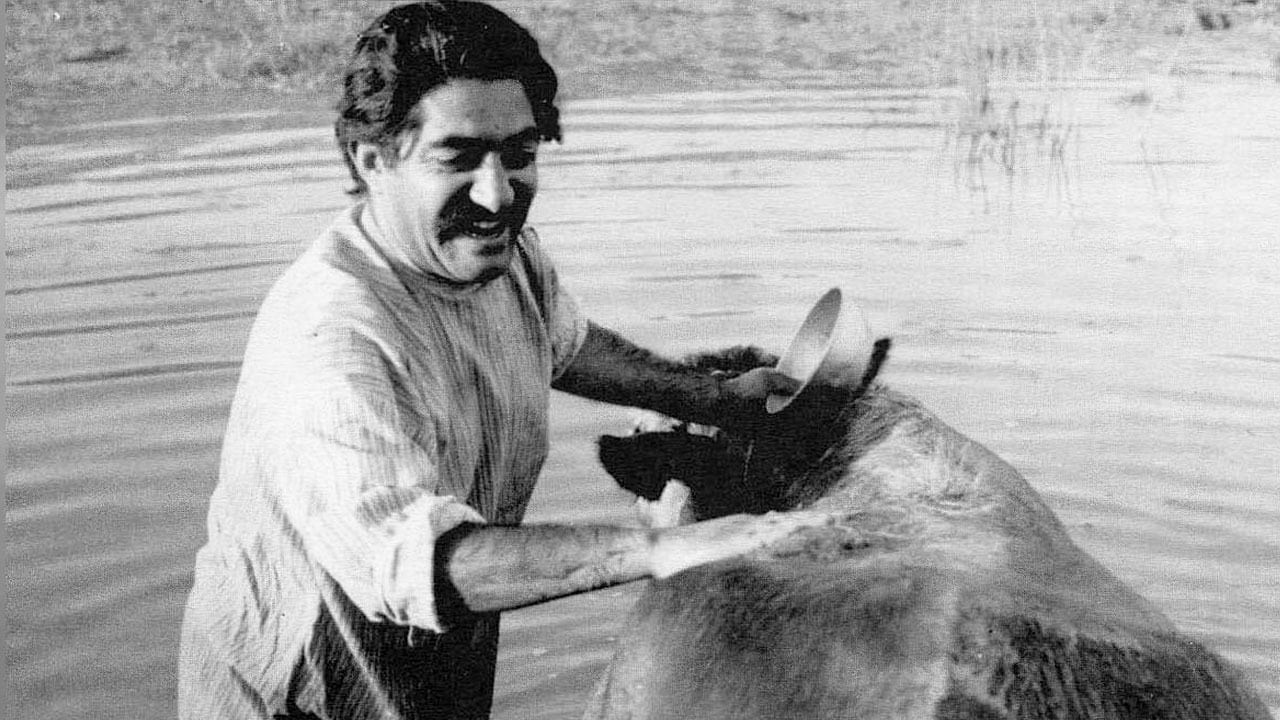
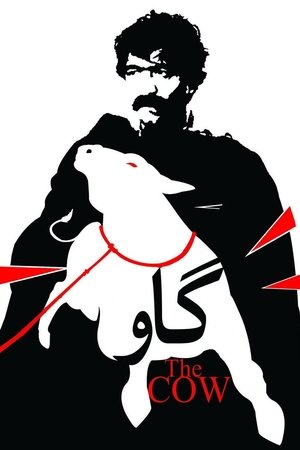
The Cow
1969 • 1h 45min • ★ 7.688/10 • Iran
Directed by: Dariush Mehrjui
Cast: Ezzatollah Entezami, Mahin Shahabi, Ali Nasirian, Jamshid Mashayekhi, Firouz Behjat-Mohamadi
An old villager deeply in love with his cow goes to the capital for a while. While he's there, the cow dies and now the villagers are afraid of his possible reaction to it when he returns.
“The Cow” (original title: “Gaav”) is a 1969 Iranian film directed by Dariush Mehrjui. It is considered a seminal work in Iranian cinema and is often cited as a classic of Iranian New Wave cinema.
“The Cow” tells the story of a poor villager named Masht Hassan, played by Ezzatolah Entezami. Masht Hassan’s only companion is his beloved cow, which provides him with both companionship and sustenance.
However, when the cow unexpectedly dies, Masht Hassan’s world is shattered. The village believes that Masht Hassan has gone insane and starts treating him as if he were the cow, including feeding him grass and treating him like an animal.
The film explores themes of loss, isolation, and the thin line between sanity and insanity. It delves into the psychological state of Masht Hassan and the impact of his loss on his identity and the perceptions of others in the community.
“The Cow” serves as a commentary on social and psychological issues prevalent in rural Iranian society at the time.
“The Cow” is known for its poetic and symbolic storytelling, blending elements of realism and allegory. It was one of the first Iranian films to gain international recognition and played a significant role in establishing Iranian cinema on the global stage.
The film’s exploration of human vulnerability and the power of empathy resonated with audiences, and it continues to be celebrated for its artistic merits and its contribution to Iranian cinematic history.
“The Cow” remains a landmark film in Iranian cinema, representing a turning point in the country’s cinematic landscape and inspiring generations of filmmakers.
- Factory sealed DVD
- Ezzatolah Entezami, Ezatallah Ramezanifar, Jamshid Mashayekhi (Actors)
- Dariush Mehrjui (Director)
- English (Subtitle)
- English (Publication Language)
8. Fireworks Wednesday (2006)
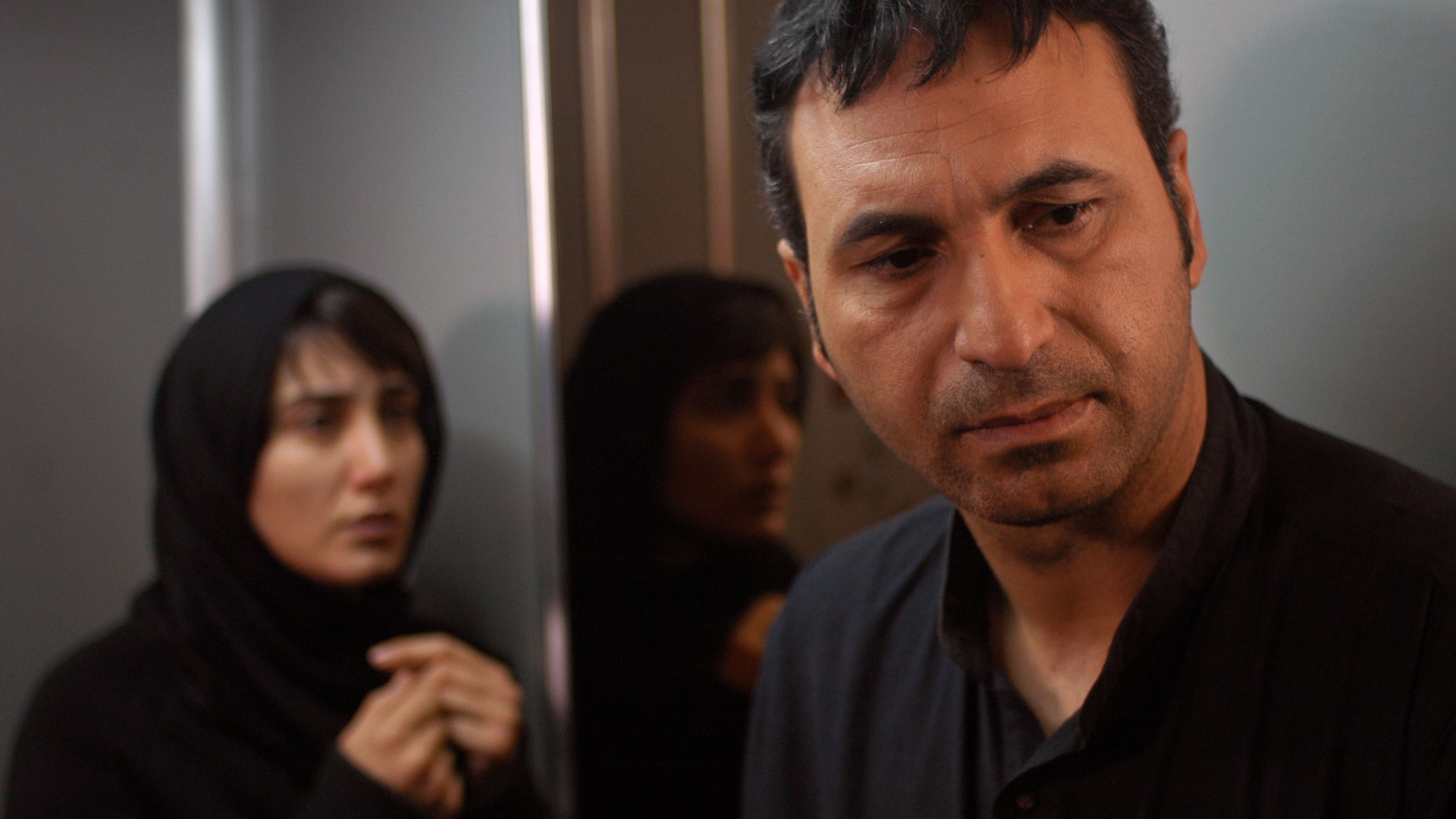
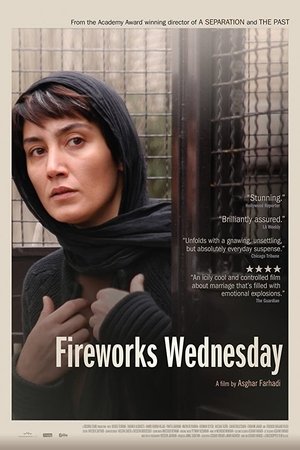
Fireworks Wednesday
2006 • 1h 42min • ★ 7.447/10 • Iran
Directed by: Asghar Farhadi
Cast: Hamid Farrokhnejad, Hedie Tehrani, Taraneh Alidoosti, Pantea Bahram, Sahar Dolatshahi
Rouhi, a young bride-to-be, is hired as a maid for an affluent family in Tehran. Upon arriving, she is suddenly thrust into an explosive domestic conflict. The wife is convinced her husband is having an affair and enlists Rouhi as a spy, to follow her husband, and confirm her suspicions. What Rouhi discovers, however, threatens not only their marriage but her own future.
“Fireworks Wednesday” (original title: “Chaharshanbe-soori”) is an Iranian drama film directed by Asghar Farhadi and released in 2006. The film offers a gripping portrayal of domestic turmoil and societal tensions against the backdrop of the Persian New Year celebrations.
The story revolves around a young woman named Rouhi, who is employed as a house cleaner. On the Wednesday before the Persian New Year (known as Chaharshanbe-soori), Rouhi arrives at a new client’s apartment and becomes entangled in the complex dynamics of the household.
As Rouhi goes about her work, she witnesses the strained relationship between the husband and wife, Mojdeh and Morteza. Secrets, suspicions, and misunderstandings slowly unravel, leading to a series of intense and unexpected events.
“Fireworks Wednesday” explores themes of marital conflict, gender roles, class differences, and the consequences of infidelity. The film provides a nuanced depiction of interpersonal relationships and societal pressures within contemporary Iranian society.
Asghar Farhadi’s directorial prowess is evident in his ability to create tension and emotional depth through richly developed characters and intricate storytelling.
The film garnered critical acclaim for its realistic portrayal of human emotions and earned Farhadi the Best Director award at the Fajr Film Festival.
“Fireworks Wednesday” is notable for its strong performances, compelling narrative, and its exploration of complex social dynamics. It offers viewers a thought-provoking and immersive experience that showcases Farhadi’s skill as a storyteller.
Please note that “Fireworks Wednesday” is in Persian with English subtitles and is available on various streaming platforms or through DVD releases with subtitles in different languages, depending on your region.
- Amazon Prime Video (Video on Demand)
- Hamid Farrokhnezhad, Hediyeh Tehrani, Taraneh Alidoosti (Actors)
- Asghar Farhadi (Director) - Asghar Farhadi (Writer) - Jamal Sadatian (Producer)
- (Playback Language)
- Audience Rating: NR (Not Rated)
9. Gabbeh (1996)

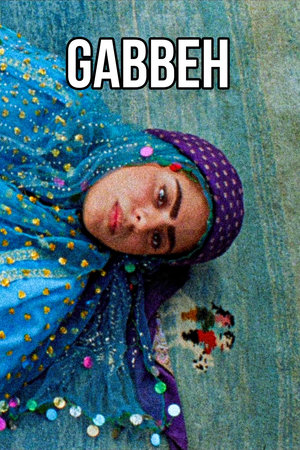
Gabbeh
Life is Colour. Love is Colour.
1996 • 1h 12min • ★ 6.618/10 • Iran
Directed by: Mohsen Makhmalbaf
Cast: Shaghayeh Djodat, Abbas Sayah, Hossein Moharami, Rogheih Moharami, Parvaneh Ghalandari
An elderly couple go about their routine of cleaning their gabbeh, while bickering gently with each other. Magically, a young woman appears, helping the two clean the rug. This young woman belongs to the clan whose history is depicted in the design of the gabbeh, and the rug recounts the story of the courtship of the young woman by a stranger from the clan.
“Gabbeh” is a 1996 Iranian film directed by Mohsen Makhmalbaf. The film is known for its poetic and visually stunning portrayal of Iranian nomadic culture and traditions.
“Gabbeh” tells the story of a young woman named Gabbeh (played by Shaghayegh Djodat) who is depicted as a living tapestry in the form of a traditional Persian rug, known as a gabbeh.
The film weaves together elements of fantasy and reality as Gabbeh narrates her own story, which revolves around love, freedom, and the challenges faced by women in a traditional society.
The narrative follows Gabbeh’s desire to be with the man she loves, despite societal restrictions and family objections. It also delves into the symbolism and folklore associated with the gabbeh rug, representing the cultural heritage and the untold stories of women within Iranian society.
“Gabbeh” is highly regarded for its vibrant cinematography, evocative storytelling, and the integration of traditional Persian music and poetry. It captures the beauty of Iranian landscapes, rugs, and costumes, immersing viewers in a rich visual and cultural experience.
The film received critical acclaim both in Iran and internationally for its unique blend of narrative, folklore, and visual artistry.
“Gabbeh” showcases Mohsen Makhmalbaf’s distinct directorial style and his exploration of themes related to identity, tradition, and the power of storytelling.
No products found.
10. The Green Wave (2010)
“The Green Wave” is a 2010 documentary film directed by Ali Samadi Ahadi. The film explores the events surrounding the 2009 Iranian presidential election and the subsequent protests that occurred in Iran, known as the Green Movement.
“The Green Wave” combines animation, archival footage, and interviews to provide an in-depth look at the uprising and the experiences of Iranian citizens during that period.
The film highlights the role of social media, particularly Twitter and YouTube, in spreading information and mobilizing protesters.
Through personal stories and firsthand accounts, “The Green Wave” sheds light on the hopes, frustrations, and struggles of the Iranian people as they voiced their dissatisfaction with the election results and called for political change.
It also delves into the government’s response, including the use of violence and suppression to quell the demonstrations.
The documentary offers a critical examination of the political landscape in Iran and the challenges faced by those who sought to challenge the status quo.
It provides insight into the power dynamics, censorship, and the resilience of the Iranian people in their quest for democracy and human rights.
“The Green Wave” received positive reviews for its thought-provoking storytelling and its ability to humanize the individuals behind the protests.
It sheds light on a significant moment in Iran’s recent history and raises important questions about political activism, freedom of expression, and the impact of social media in shaping political movements.
The film serves as a testament to the power of collective action and the determination of individuals to bring about change in the face of adversity.
It offers a valuable perspective on the Iranian Green Movement and its implications within the broader context of global struggles for democracy and social justice.
11. Hamoun (1990)

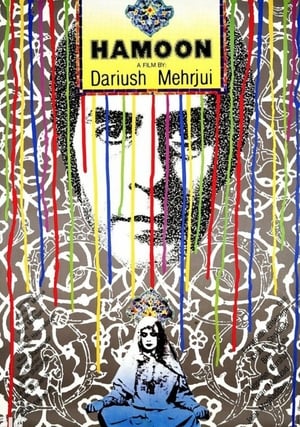
Hamoon
1990 • 2h 0min • ★ 7.1/10 • Iran
Directed by: Dariush Mehrjui
Cast: Khosro Shakibai, Bita Farrahi, Ezzatollah Entezami, Sedigheh Kianfar, Turan Mehrzad
Hamoon's wife is leaving him. He is also unsuccessfully trying to finish his Ph.D. thesis. He is forced to reexamine his life. In a series of flashbacks and dreams, Hamoon tries to figure out what he did wrong.
“Hamoun” is a 1990 Iranian drama film directed by Dariush Mehrjui. It is considered one of the most influential Iranian films of all time and has garnered critical acclaim both domestically and internationally.
The film follows the story of Hamid Hamoun, a writer and intellectual living in Tehran. Hamid is going through a midlife crisis, feeling disillusioned with his life and relationships.
As he navigates the complexities of his marriage, friendships, and societal pressures, he embarks on a journey of self-discovery and introspection.
“Hamoun” explores themes of identity, existentialism, and the challenges faced by individuals in a changing society.
https://www.youtube.com/watch?v=UsPbe8btx2Y&pp=ygUVSGFtb3VuICgxOTkwKSB0cmFsaWVy
It provides a poignant portrayal of the struggles and conflicts experienced by the intellectual elite in Tehran, particularly during the Iranian Revolution and the subsequent cultural transformations.
The film is known for its strong storytelling, rich character development, and the exceptional performance by the lead actor, Khosrow Shakibai, who brings depth and vulnerability to the role of Hamid Hamoun.
“Hamoun” is recognized for its nuanced exploration of human emotions and its ability to capture the complexities of Iranian society during a time of significant political and cultural change.
Dariush Mehrjui, the director of “Hamoun,” is a highly regarded figure in Iranian cinema. He is known for his insightful and socially conscious filmmaking, and “Hamoun” is considered one of his seminal works.
The film has had a lasting impact on Iranian cinema, influencing subsequent generations of filmmakers and contributing to the growth of the country’s cinematic identity.
No products found.
12. Kandahar (2001)
“Kandahar” is a 2001 Iranian film directed by Mohsen Makhmalbaf. The film follows the journey of an Afghan-Canadian woman named Nafas, who returns to Afghanistan in an attempt to prevent her sister from committing suicide.
Set against the backdrop of the oppressive Taliban regime, Nafas navigates through war-torn landscapes and encounters various individuals along the way.
She faces numerous challenges and obstacles as she tries to reach her sister in the city of Kandahar before the solar eclipse, which her sister has chosen as the date for her suicide.
“Kandahar” sheds light on the harsh realities of life under Taliban rule, including gender oppression, poverty, and violence.
It addresses themes of identity, cultural clashes, and the struggle for freedom. The film offers a critical examination of the social and political situation in Afghanistan during that period.
“Kandahar” received international acclaim for its powerful storytelling, thought-provoking subject matter, and visually striking cinematography. It provides a poignant portrayal of the human condition amidst war and oppression.
Please note that my knowledge is based on information available up until September 2021, and there may have been subsequent developments or details related to “Kandahar” that I’m unaware of.
- Nelofer Pazira, Hassan Tantai, Ike Ogut (Actors)
- Mohsen Makhmalbaf (Director) - Mohsen Makhmalbaf (Writer)
- English, French (Subtitles)
- Audience Rating: NR (Not Rated)
13. Leila (1997)
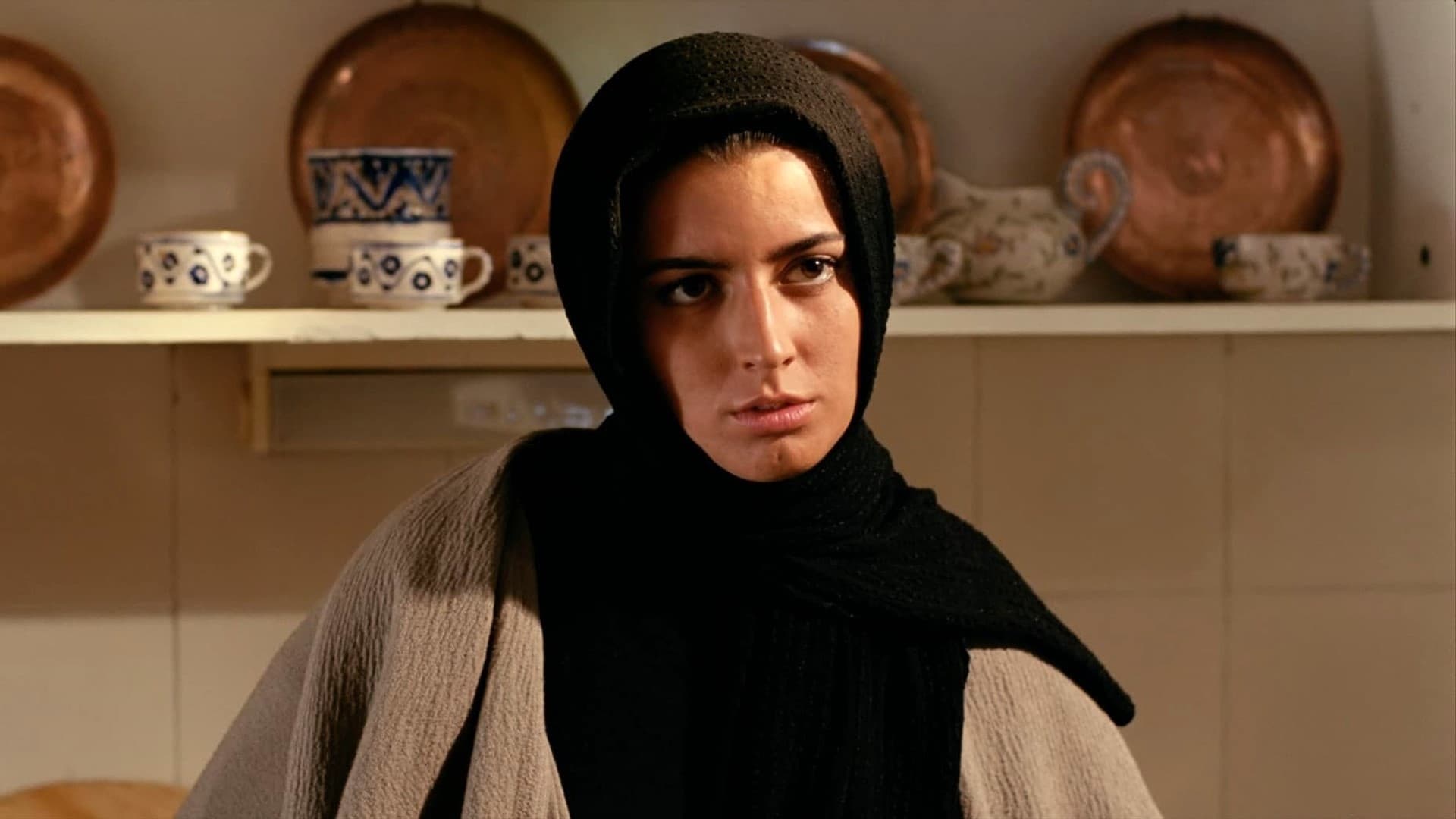
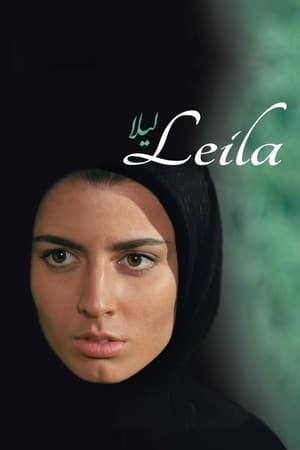
Leila
1999 • 2h 5min • ★ 7.4/10 • Iran
Directed by: Dariush Mehrjui
Cast: Leila Hatami, Ali Mosaffa, Jamileh Sheikhi, Turan Mehrzad, Amir Pievar
This film tells the story of a semi modern Iranian couple, who are trying to fight the old beliefs and old generation. This is a failing battle because the man is not strong enough.
“Leila” is an Iranian film released in 1997, directed by Dariush Mehrjui. The movie explores complex themes of love, marriage, societal expectations, and personal freedom in Iranian society.
The story revolves around a couple named Leila and Reza, played by Leila Hatami and Ali Mosaffa, who are happily married but face societal pressure to have a child. When they discover that Leila is infertile, it becomes a source of great distress for both of them.
In an attempt to find a solution, Reza’s mother suggests that he takes a second wife who can provide him with a child.
This proposal challenges Leila’s sense of self-worth and places strain on their relationship. Leila is faced with the emotional turmoil of navigating her desires, societal expectations, and the constraints placed upon her.
“Leila” is renowned for its sensitive portrayal of complex emotions and its exploration of the tensions between personal desires and societal norms. The film delves into the internal struggles of its characters and their quest for individual autonomy in the face of societal pressures.
Dariush Mehrjui’s direction in “Leila” is highly regarded, as is the performance of Leila Hatami, who brings depth and nuance to her character. The film is known for its emotional depth, realistic depiction of Iranian society, and its thought-provoking examination of love and marriage.
“Leila” received critical acclaim both in Iran and internationally, and it further established Dariush Mehrjui as a prominent filmmaker.
The movie continues to be regarded as a significant work in Iranian cinema for its exploration of universal themes and its ability to engage with the complexities of human relationships.
No products found.
14. Manuscripts Don’t Burn (2013)
“Manuscripts Don’t Burn” (original title: “Dast-neveshtehaa nemisoozand”) is a 2013 Iranian drama film directed by Mohammad Rasoulof. The film sheds light on political censorship and repression in Iran, drawing inspiration from real-life events.
“Manuscripts Don’t Burn” tells the story of two writers, Kasra (played by Khosro Shakibai) and Khosrow (played by Hassan Pourshirazi), who are targeted by the Iranian government due to their subversive writings.
The film follows their struggles to survive in a society where freedom of expression is severely curtailed.
The plot is based on the “Chain Murders” that occurred in Iran during the 1990s, where several intellectuals and dissidents were mysteriously killed.
While the film’s characters and events are fictionalized, it reflects the harsh reality faced by writers and intellectuals who dare to criticize the government.
“Manuscripts Don’t Burn” offers a chilling portrayal of surveillance, intimidation, and corruption within the Iranian regime. It explores the lengths to which the government goes to silence dissent and suppress the truth.
The film examines the personal sacrifices and moral dilemmas faced by the characters as they navigate an oppressive system.
Despite facing numerous challenges during production, including government censorship and a ban on filmmaking, Mohammad Rasoulof managed to complete the film. “Manuscripts Don’t Burn” premiered at the Cannes Film Festival in 2013 and received critical acclaim for its powerful storytelling and indictment of authoritarianism.
The film serves as a testament to the resilience and bravery of artists who continue to fight for freedom of expression in repressive societies.
It sheds light on the importance of preserving individual voices and standing up against censorship and oppression.
- Amazon Prime Video (Video on Demand)
- Anonymous (Actor)
- Mohammad Rasoulof (Director) - Mohammad Rasoulof (Writer) - Mohammad Rasoulof (Producer)
- (Playback Language)
15. Marooned in Iraq (2002)
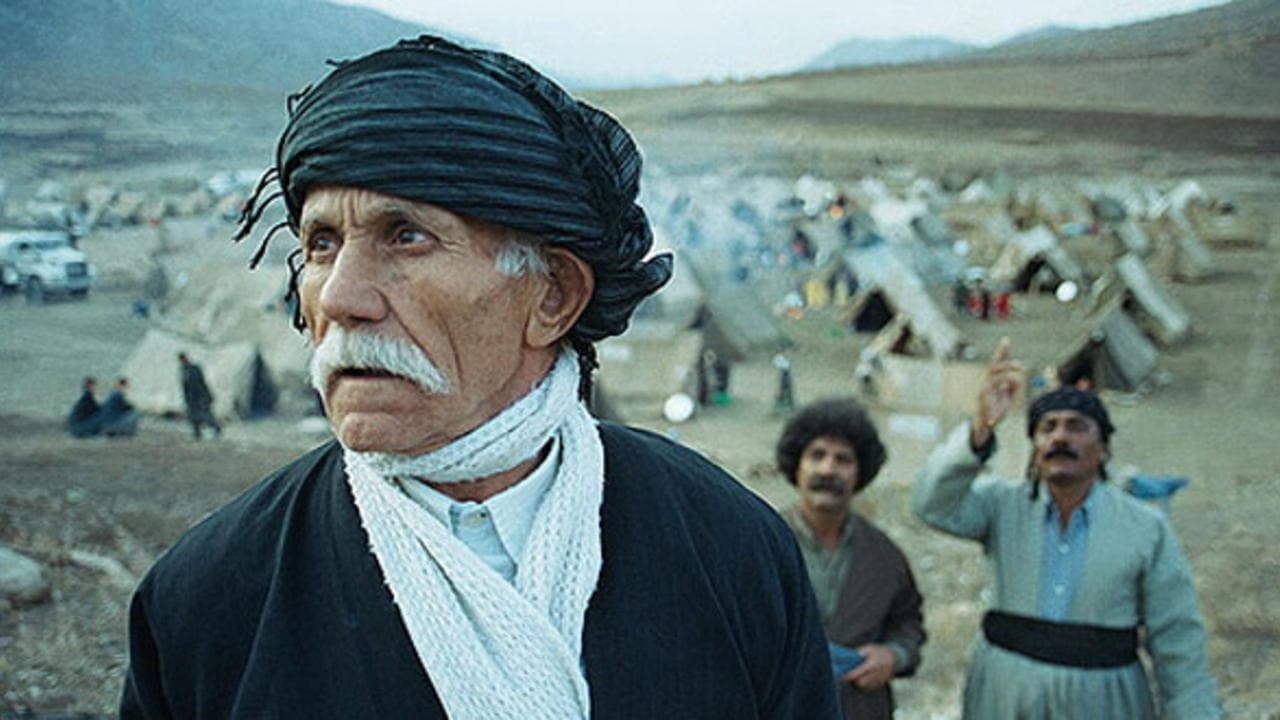
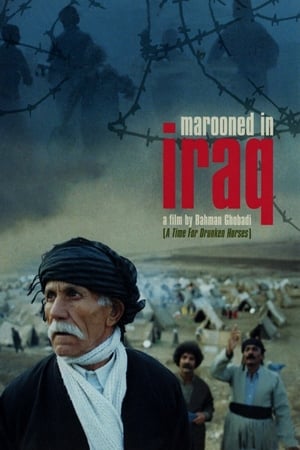
Marooned in Iraq
2002 • 1h 48min • ★ 6.9/10 • Iran
Directed by: Bahman Ghobadi
Cast: Shahab Ebrahimi, Rojan Hosseini, Saeed Mohammadi, AllahMorad Rashtiani, Faegh Mohamadi
During the war between Iran and Iraq, a group of Iranian Kurd musicians set off on an almost impossible mission. They will try to find Hanareh, a singer with a magic voice who crossed the border and may now be in danger in the Iraqi Kurdistan. As in his previous films, this Kurdish director is again focusing on the oppression of his people.
“Marooned in Iraq” (original title: “Gomgashtei dar Aragh”) is an Iranian film directed by Bahman Ghobadi and released in 2002. The film tells the story of a group of Kurdish musicians who embark on a journey to find a missing musician’s wife in war-torn Iraq.
Set against the backdrop of the Iran-Iraq War, the film follows the journey of the musicians as they navigate the dangerous and chaotic landscape of Kurdistan.
They encounter various challenges and obstacles along the way, including the devastating effects of war, displacement, and political instability.
“Marooned in Iraq” offers a unique perspective on the lives of Kurdish people and the impact of war on their communities. It explores themes of love, loss, resilience, and the power of music in the face of adversity.
The film combines elements of drama and comedy, using music as a central motif to convey the characters’ emotions and experiences. It incorporates traditional Kurdish music and showcases the cultural heritage of the region.
“Marooned in Iraq” received critical acclaim for its authentic portrayal of Kurdish culture, its poignant storytelling, and its examination of the human spirit in times of hardship.
The film highlights the struggles and resilience of individuals caught in the midst of conflict and displacement.
Please note that the availability of “Marooned in Iraq” may vary depending on your location and the platforms or sources you have access to.
- Movie DVD
- Marooned in Iraq
- Winner of Cannes Film Festival and Chicago Film Festival
- A film by Bahman Ghobadi
- Collectible DVD
16. My Tehran for Sale
“My Tehran for Sale” is a 2009 Iranian-Australian drama film directed by Granaz Moussavi. The film offers a thought-provoking exploration of artistic freedom, cultural restrictions, and personal identity in contemporary Iran.
The story revolves around Marzieh (played by Marzieh Vafamehr), a young Iranian actress who dreams of pursuing her passion for theater and music.
Frustrated by the limitations imposed by the conservative society, Marzieh becomes involved in Tehran’s underground art scene, where she can express herself more freely.
As Marzieh navigates her clandestine activities, she faces the challenges of secrecy, surveillance, and the constant fear of being discovered by the authorities.
The film sheds light on the struggle of artists and individuals who strive to find their voice and preserve their identities in an oppressive environment.
“My Tehran for Sale” offers a nuanced and intimate portrayal of the internal conflicts and emotional toll experienced by those who yearn for creative expression and personal freedom.
The film combines elements of drama, music, and documentary-style footage to convey the realities of life in Tehran’s underground cultural scene.
The film received critical acclaim for its poignant storytelling, Marzieh Vafamehr’s compelling performance, and its depiction of the artistic spirit’s resilience in the face of repression.
“My Tehran for Sale” provides a unique glimpse into the struggles faced by artists in Iran and explores universal themes of individuality, self-expression, and the longing for freedom.
- Marzieh Vafamehr, Amir Chegini (Actor)
- Granaz Moussavi (Director)
- English (Subtitle)
17. No One Knows About Persian Cats (2009)
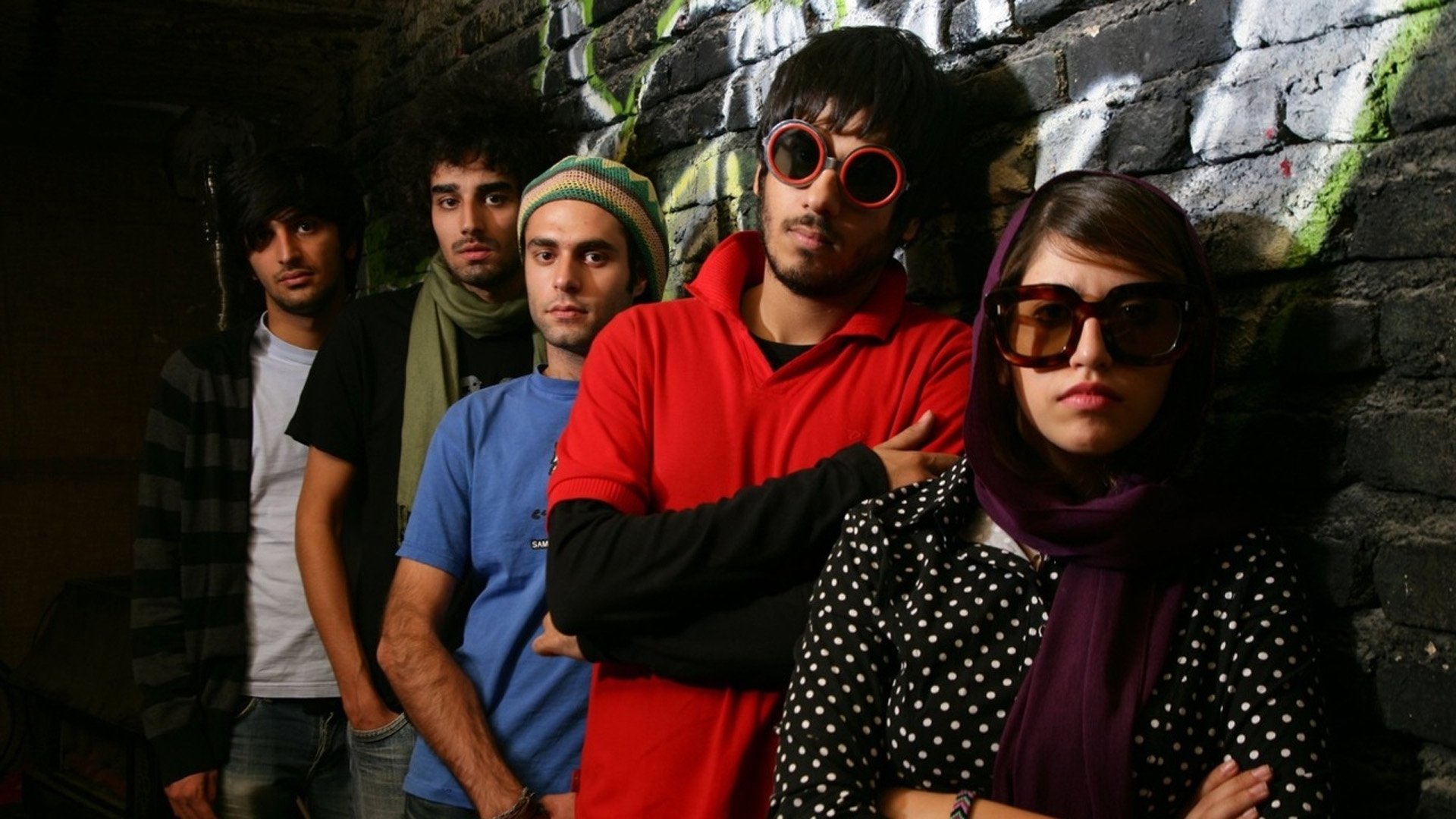
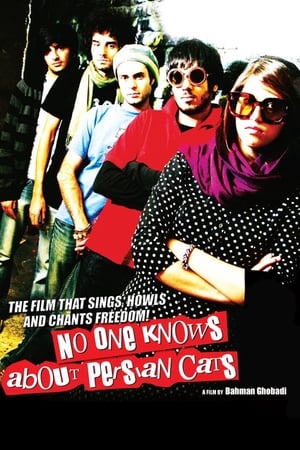
No One Knows About Persian Cats
2009 • 1h 46min • ★ 6.72/10 • Iran
Directed by: Bahman Ghobadi
Cast: Negar Shaghaghi, Ashkan Koshanejad, Hamed Behdad, Babak Mirzakhani, Kosh Mirzahi
Iranian musicians Negar and Ashkan look for band members to play at a London concert ... and the visa that allows them to leave Tehran to do so.
“No One Knows About Persian Cats” is a 2009 Iranian drama film directed by Bahman Ghobadi. The film delves into the underground music scene in Tehran, showcasing the challenges faced by young Iranian musicians in pursuing their passion for music.
The story follows two musicians, Negar and Ashkan, who have recently been released from prison. Determined to form a band and perform in a music festival in London, they face various obstacles due to the restrictions on artistic expression in Iran.
They seek the help of a promoter named Nader, who guides them through the underground music scene, helping them find band members and secure the necessary permits for their journey.
“No One Knows About Persian Cats” sheds light on the vibrant and diverse music culture in Tehran, highlighting different genres such as rock, rap, and traditional Iranian music.
The film portrays the struggles of musicians who must operate in secret, often facing censorship, arrests, and the constant fear of being discovered by the authorities.
The documentary-style film blends elements of fiction with real-life interviews and performances from actual Iranian musicians. It provides a glimpse into the lives of these artists, their dreams, and the risks they take to pursue their creative aspirations.
The film received critical acclaim for its honest portrayal of the challenges faced by Iranian musicians and its exploration of the wider socio-political context in which they operate.
It offers a poignant commentary on freedom of expression, cultural censorship, and the power of music as a form of resistance.
“No One Knows About Persian Cats” won the Special Jury Prize in the Un Certain Regard section at the 2009 Cannes Film Festival, further bringing attention to the film’s powerful narrative and its significance within Iranian cinema.
It serves as a testament to the resilience and creativity of artists in challenging environments and raises awareness about the restrictions on artistic freedom in Iran.
- Factory sealed DVD
- Babak Mirkhani, Ashkan Koshanejad, Negar Shaghaghi (Actors)
- Bahman Ghobadi (Director) - Bahman Ghobadi (Producer)
- English (Subtitle)
- English (Publication Language)
18. Offside (2006)
“Offside” is a 2006 Iranian film directed by Jafar Panahi. The film addresses social and cultural issues in Iran through the lens of women’s rights and their restricted access to stadiums during men’s football matches.
The story revolves around a group of young Iranian women who disguise themselves as men to sneak into a football stadium and watch a crucial World Cup qualifying match between Iran and Bahrain.
However, they are caught and detained by stadium security, leading to a series of encounters and conversations with the guards.
The film explores the challenges faced by these women as they defy societal norms and navigate the restrictions imposed on them.
“Offside” is notable for its combination of fictional storytelling and a documentary-like approach. Jafar Panahi, the director, uses non-professional actors, including actual female football fans, to bring authenticity to the film.
Through their interactions with the guards, the film sheds light on the larger issues of gender inequality, societal expectations, and the determination of the young women to pursue their passion for football.
The film received critical acclaim for its social commentary, engaging performances, and its ability to highlight the resilience and agency of Iranian women.
It won numerous awards at international film festivals and brought attention to Jafar Panahi’s work, further establishing him as a significant voice in Iranian cinema.
“Offside” serves as a powerful critique of gender inequality and highlights the struggles faced by women in Iran. It resonated with audiences globally and showcased the power of cinema in addressing social issues and advocating for change.
- Amazon Prime Video (Video on Demand)
- Sima Mobarak-Shahi, Shayesteh Irani, Ayda Sadeqi (Actors)
- Jafar Panahi (Director) - Jafar Panahi (Writer) - Jafar Panahi (Producer)
- English (Playback Language)
- English (Subtitle)
19. Persepolis (2007)
“Persepolis” is a 2007 animated film co-written and directed by Marjane Satrapi and Vincent Paronnaud. It is based on Satrapi’s autobiographical graphic novel series of the same name. The film tells the story of Satrapi’s own coming-of-age journey during the Islamic Revolution in Iran.
“Persepolis” follows Marjane, a young girl growing up in Tehran, as she witnesses and experiences the political and social upheavals in Iran.
It explores her personal and family struggles, her experiences as a young woman in a restrictive society, and her eventual journey of self-discovery.
The film combines elements of drama, humor, and political commentary to depict the historical events and their impact on Marjane’s life. The black-and-white animation style brings the graphic novel to life, capturing the emotional depth and visual aesthetics of the original work.
“Persepolis” received widespread acclaim for its powerful storytelling, unique animation style, and its ability to convey universal themes of identity, resilience, and the search for freedom in the face of oppression. It was nominated for an Academy Award for Best Animated Feature in 2008.
Please note that my knowledge is based on information available up until September 2021, and there may have been subsequent developments or details related to “Persepolis” that I’m unaware of.
- Amazon Prime Video (Video on Demand)
- Simon Abkarian, Danielle Darrieux, Catherine Deneuve (Actors)
- Vincent Paronnaud (Director) - Marjane Satrapi (Writer) - Xavier Rigault (Producer)
- English (Playback Language)
- English (Subtitle)
20. A Separation (2011)
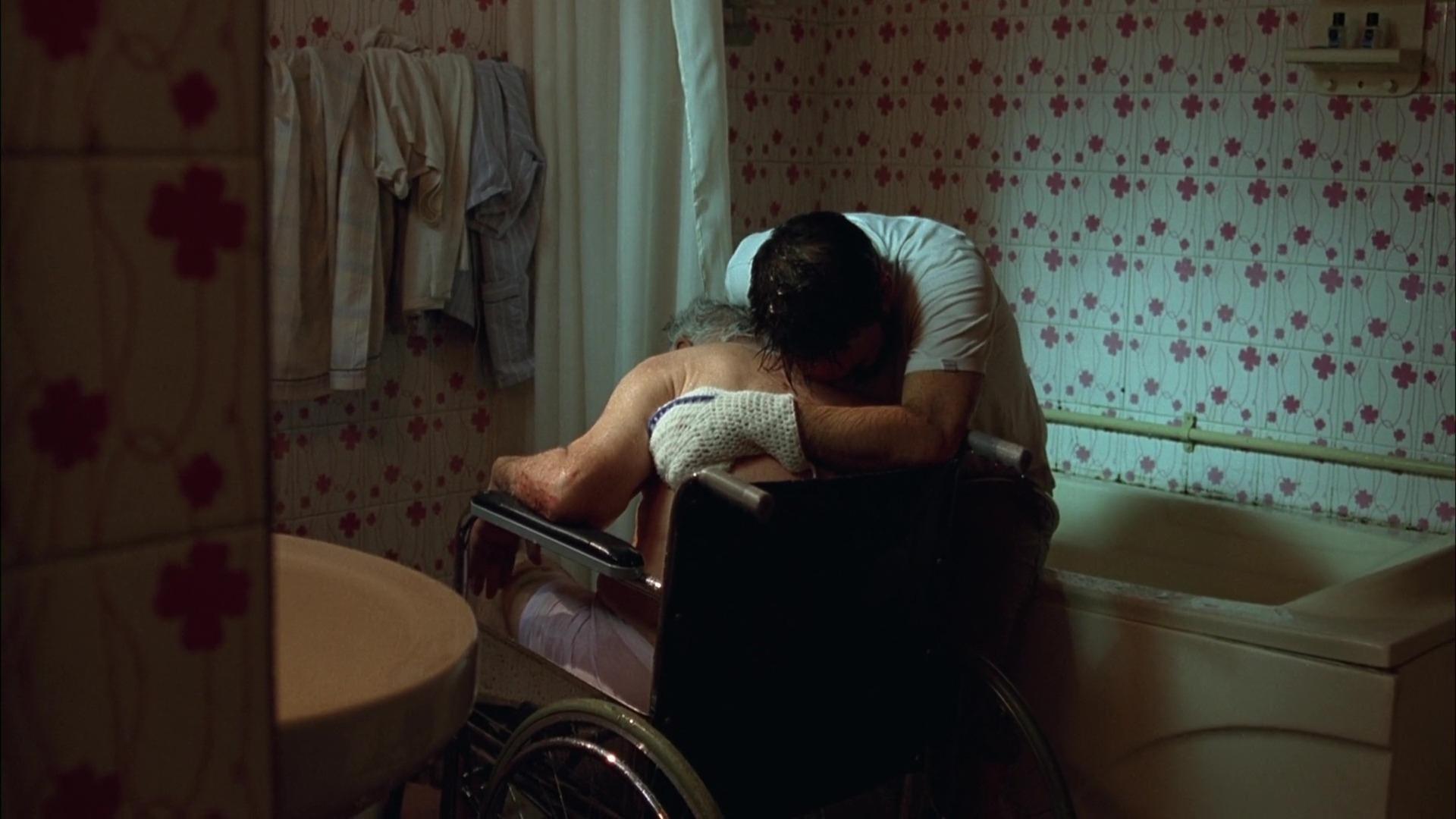
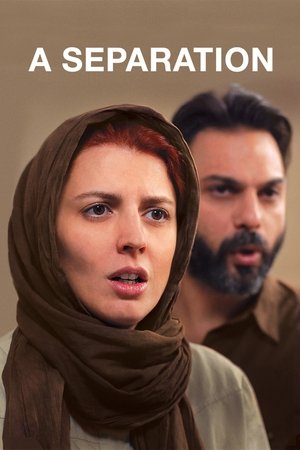
A Separation
Ugly truth, sweet lies.
2011 • 2h 3min • ★ 7.887/10 • France
Directed by: Asghar Farhadi
Cast: Leila Hatami, Payman Maadi, Sareh Bayat, Sarina Farhadi, Shahab Hosseini
A married couple are faced with a difficult decision - to improve the life of their child by moving to another country or to stay in Iran and look after a deteriorating parent who has Alzheimer's disease.
“A Separation” is an Iranian film released in 2011, directed by Asghar Farhadi. The movie gained widespread international acclaim and won numerous awards, including the Academy Award for Best Foreign Language Film in 2012.
The story revolves around a couple, Nader and Simin, played by Peyman Moaadi and Leila Hatami, who are going through a separation.
Simin wants to leave Iran with their daughter, Termeh, to seek better opportunities abroad, but Nader refuses to leave his elderly father, who has Alzheimer’s disease.
As the couple’s separation proceedings progress, a series of events unfolds that leads to a web of moral dilemmas and conflicting responsibilities.
A tragic incident involving their hired caregiver, Razieh, and her hot-tempered husband, Hodjat, further complicates the situation, sparking a chain of consequences that deeply affect the lives of all involved.
“A Separation” skillfully explores themes of family dynamics, social class, gender roles, and the complexities of human relationships. The film is renowned for its meticulous storytelling, moral ambiguity, and realistic portrayal of everyday life in Iran.
Asghar Farhadi’s direction in “A Separation” is highly acclaimed, capturing the nuances of interpersonal conflicts and the intricate layers of human behavior.
The performances of the cast, particularly Peyman Moaadi and Leila Hatami, are widely praised for their authenticity and emotional depth.
The film received critical acclaim for its thought-provoking narrative, masterful storytelling, and its ability to depict the universal struggles faced by individuals in complex social and personal situations.
“A Separation” resonated with audiences worldwide and is regarded as one of the most significant Iranian films of recent times.
- Amazon Prime Video (Video on Demand)
- Peyman Moaadi, Shahab Hosseini, Sareh Bayat (Actors)
- Asghar Farhadi (Director) - Asghar Farhadi (Writer) - Asghar Farhadi (Producer)
- English, French (Playback Languages)
- English, French (Subtitles)
21. The Song of Sparrows (2008)
“The Song of Sparrows” (original title: “Avaze Gonjeshk-ha”) is a 2008 Iranian drama film directed by Majid Majidi. The film explores the life of a simple rural man named Karim, played by Reza Naji, and his journey through the bustling city of Tehran.
Karim, a hardworking ostrich farmer, lives with his family in a rural village. When he accidentally loses one of his ostriches, he embarks on a quest to find it, which leads him to Tehran.
In the city, Karim encounters various challenges and experiences that test his character and worldview.
“The Song of Sparrows” delves into themes of economic disparity, urbanization, and the clash between traditional values and modernity.
Through Karim’s encounters with different people and situations, the film offers a social commentary on the changing dynamics of Iranian society and the impact of urban life on individuals from rural backgrounds.
Majid Majidi’s direction captures the beauty of the Iranian landscape and contrasts it with the crowded and chaotic urban environment of Tehran. The film is known for its visually stunning cinematography and its ability to depict the struggles and resilience of ordinary people.
“The Song of Sparrows” received critical acclaim for its heartfelt storytelling and the captivating performance of Reza Naji, who won the Silver Bear for Best Actor at the Berlin International Film Festival for his portrayal of Karim.
The film highlights themes of family, determination, and the inherent goodness that can be found in the human spirit.
Overall, “The Song of Sparrows” is a poignant and reflective film that explores universal themes through the lens of an individual’s personal journey. It showcases the talent of Iranian cinema and its ability to portray human stories with depth and emotional resonance.
- Amazon Prime Video (Video on Demand)
- Mohammad Amir Naji, Maryam Akbari, Kamram Deghan (Actors)
- Majid Majidi (Director) - Mehran Kashani (Writer) - Majid Majidi (Producer)
- (Playback Language)
- Audience Rating: PG (Parental Guidance Suggested)
22. Taste of Cherry (1997)
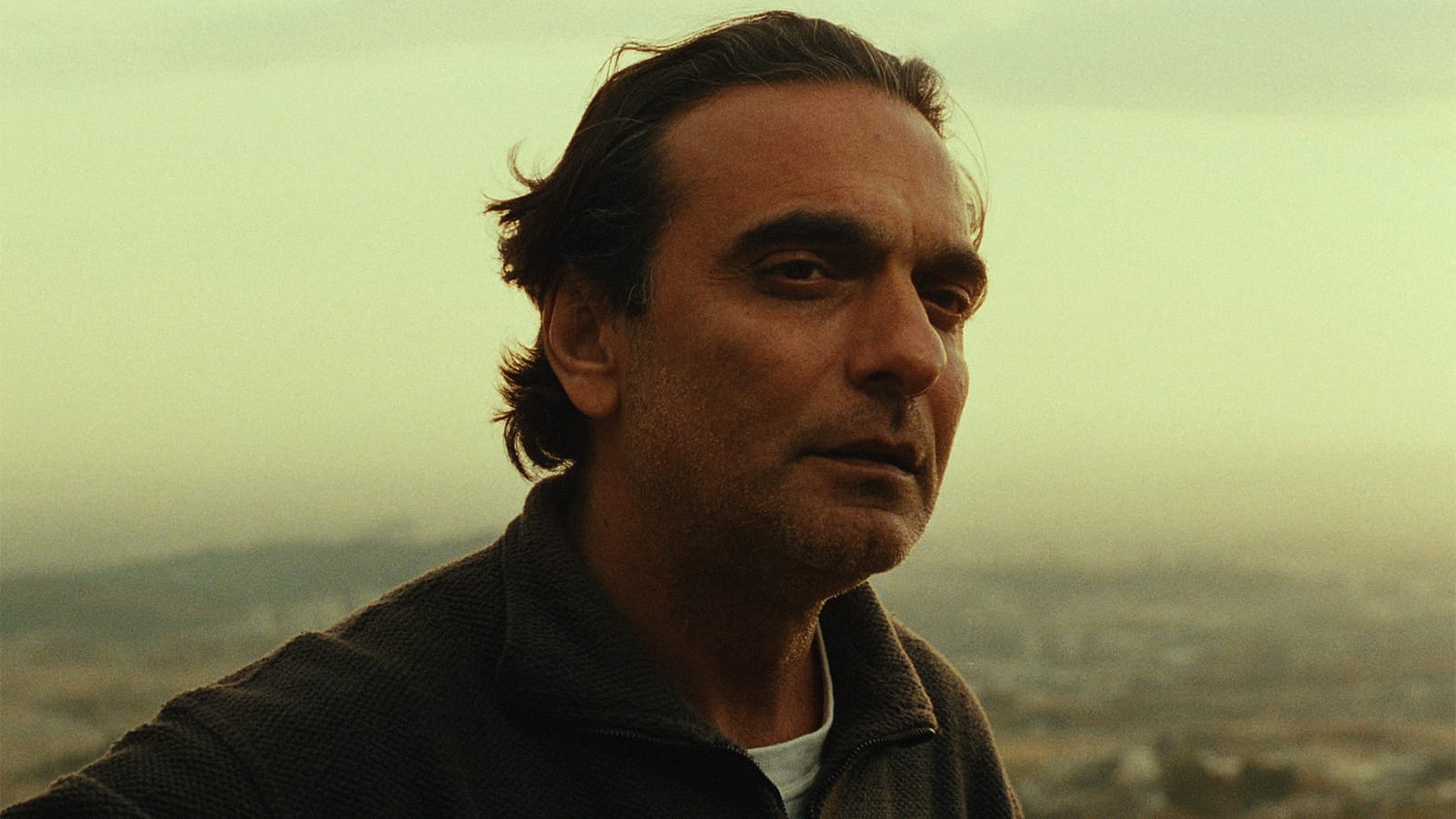
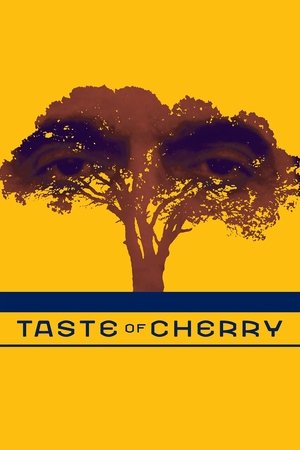
Taste of Cherry
The end of the road.
1997 • 1h 39min • ★ 7.656/10 • Iran
Directed by: Abbas Kiarostami
Cast: Homayoun Ershadi, Abdolrahman Bagheri, Safar Ali Moradi, Mir Hossein Noori, Elham Imani
A middle-aged Tehranian man, Mr. Badii is intent on killing himself and seeks someone to bury him after his demise. Driving around the city, the seemingly well-to-do Badii meets with numerous people, including a Muslim student, asking them to take on the job, but initially he has little luck. Eventually, Badii finds a man who is up for the task because he needs the money, but his new associate soon tries to talk him out of committing suicide.
“Taste of Cherry” (original title: “Ta’m-e-Guilass”) is an Iranian drama film directed by Abbas Kiarostami and released in 1997. The film is renowned for its contemplative and minimalist style and is considered one of Kiarostami’s most acclaimed works.
The story revolves around Mr. Badii, a middle-aged man who drives around Tehran, searching for someone to assist him with a specific task.
Through a series of encounters with different individuals, Badii reveals his intention to find someone who will help him with his planned suicide and bury him if he succeeds.
As Badii engages in conversations with these potential assistants, the film delves into profound discussions about life, death, and the meaning of existence. It explores themes of despair, human connection, and the struggle to find purpose in life.
“Taste of Cherry” is characterized by its deliberate pacing, long takes, and minimal dialogue. It invites viewers to contemplate the complexities of life and the significance of human relationships.
The film received international acclaim and won the Palme d’Or at the 1997 Cannes Film Festival.
It is considered a masterwork of Iranian cinema and has been praised for its thought-provoking storytelling, nuanced performances, and Kiarostami’s innovative approach to cinema.
Please note that “Taste of Cherry” is in Persian with English subtitles and is available on various streaming platforms or through DVD releases with subtitles in different languages, depending on your region.
- Amazon Prime Video (Video on Demand)
- Homayoun Ershadi, Abdolrahman Bagheri, Afshin Khorshid Bakhtiari (Actors)
- Abbas Kiarostami (Director) - Abbas Kiarostami (Writer) - Abbas Kiarostami (Producer)
- Audience Rating: NR (Not Rated)
23. Ten (2002)
“Ten” is a 2002 Iranian film directed by Abbas Kiarostami. The film follows a simple yet intriguing premise: it consists of ten conversations between a female driver (played by Mania Akbari) and her passengers, who are mostly women.
These conversations take place within the confines of a car as the driver navigates through the streets of Tehran.
Through these dialogues, “Ten” explores a range of topics and themes, including love, relationships, marriage, gender roles, and social issues.
The conversations reveal the complexities and contradictions of contemporary Iranian society, as well as the challenges faced by women in their daily lives.
The film is renowned for its minimalist approach, with Kiarostami employing long takes and naturalistic performances to create an intimate and realistic atmosphere.
The confined setting of the car serves as a microcosm of Iranian society, where diverse perspectives and experiences are brought to the fore.
“Ten” is a reflective and introspective work that encourages viewers to contemplate and engage with the ideas and experiences presented in the conversations. The film offers a glimpse into the lives of Iranian women, highlighting their struggles, aspirations, and resilience.
“Ten” received critical acclaim for its innovative storytelling approach, its exploration of societal issues, and the strong performances by its cast.
Abbas Kiarostami, one of Iran’s most acclaimed directors, is known for his poetic and contemplative style, and “Ten” is considered one of his notable works.
- Amazon Prime Video (Video on Demand)
- Mania Akbari, Roya Akbari, Amin Maher (Actors)
- Abbas Kiarostami (Director) - Abbas Kiarostami (Writer) - Marin Karmitz (Producer)
- (Playback Language)
- Audience Rating: NR (Not Rated)
24. This is Not a Film (2011)
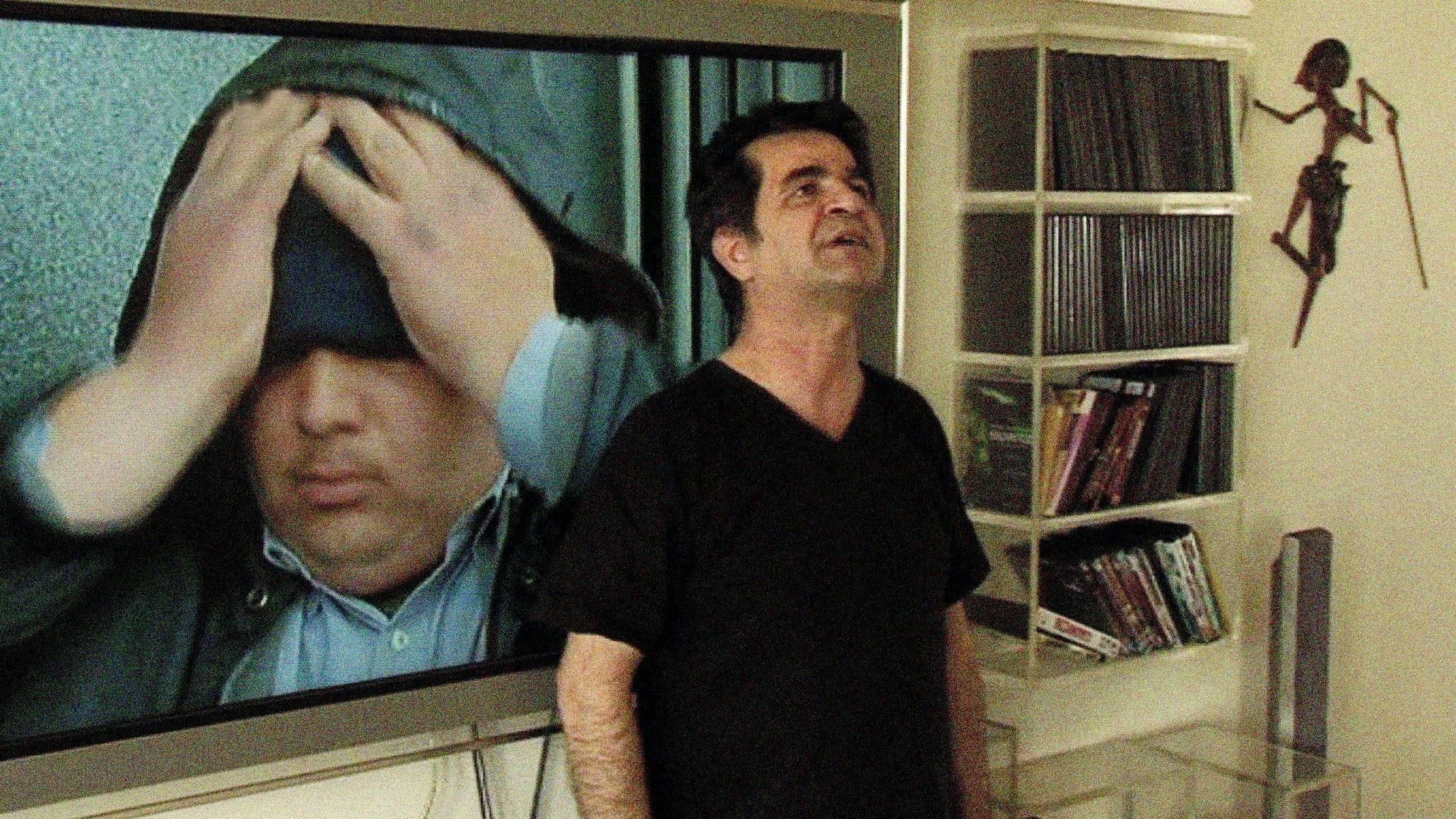

This Is Not a Film
If we could tell a film, then why make a film?
2011 • 1h 15min • ★ 6.984/10 • Iran
Directed by: Jafar Panahi
Cast: Jafar Panahi, Igi, Mrs. Gheirat, Mojtaba Mirtahmasb, Rakhsan
Renowned Iranian director Jafar Panahi received a 6-year prison sentence and a 20-year ban from filmmaking and conducting interviews with foreign press due to his open support for the opposition party in Iran's 2009 election. In this film, which was shot secretly by Panahi's close friend Mojtaba Mirtahmasb and smuggled into France on a USB stick concealed inside a cake for a last-minute submission to Cannes, Panahi documents his daily life under house arrest as he awaits a decision on his appeal.
“This is Not a Film” is a 2011 documentary film co-directed by Jafar Panahi and Mojtaba Mirtahmasb.
The film offers an intimate and personal glimpse into the life of Jafar Panahi, an acclaimed Iranian filmmaker who was under house arrest and banned from making films at the time of its production.
The documentary was made in response to the restrictions imposed on Jafar Panahi by the Iranian government, which had sentenced him to a six-year prison term and a 20-year ban on filmmaking.
Unable to work on a conventional film, Panahi resorts to using a digital camera to document his daily life, discussing his creative ideas, and reading the screenplay of a film he was planning to make.
“This is Not a Film” captures the frustration and resilience of Jafar Panahi, who finds ways to express his artistic vision despite the limitations imposed on him.
The film serves as a form of protest against the oppressive censorship and highlights the challenges faced by artists under repressive regimes.
The documentary offers a unique blend of personal storytelling, social commentary, and self-reflection. It reflects on the power of cinema, the importance of artistic freedom, and the role of the filmmaker in society.
Through Panahi’s interactions with his surroundings, the film provides a deeper understanding of the political and cultural climate in Iran.
“This is Not a Film” gained international recognition and was screened at various film festivals worldwide, including the Cannes Film Festival.
It received critical acclaim for its creative approach to filmmaking, its thought-provoking content, and its courageous defiance of censorship.
The film stands as a testament to Jafar Panahi’s resilience as an artist and his determination to tell stories despite the obstacles he faced. It serves as a powerful document of artistic resistance and a testament to the enduring spirit of creativity in the face of adversity.
No products found.
25. A Time for Drunken Horses (2000)
“A Time for Drunken Horses” is a 2000 Iranian-Kurdish drama film directed by Bahman Ghobadi. It is notable for its portrayal of the challenges faced by a group of Kurdish children living in the Iran-Iraq border region.
The film follows the story of a young boy named Ayoub and his family, who live in a poverty-stricken village. Ayoub’s parents have passed away, and he takes on the responsibility of caring for his siblings, including his disabled brother, Madi.
In order to finance Madi’s medical treatment, Ayoub takes up dangerous and physically demanding work as a smuggler, crossing the treacherous mountains between Iran and Iraq.
“A Time for Drunken Horses” depicts the struggles, hardships, and resilience of the characters as they confront poverty, limited opportunities, and the harsh realities of survival.
It explores themes of sacrifice, familial bonds, and the lengths people are willing to go for the well-being of their loved ones.
The film received critical acclaim for its raw and poignant storytelling, capturing the lives of the characters with authenticity and compassion.
It won several awards at international film festivals, including the Camera d’Or at the Cannes Film Festival in 2000, which recognized it as the best debut feature.
Bahman Ghobadi, the director, is known for his sensitive and powerful portrayal of Kurdish life in his films.
“A Time for Drunken Horses” is considered one of his most acclaimed works, shedding light on the resilience and determination of marginalized communities in the face of adversity.
The film provides a glimpse into the lives of Kurds in the region and raises awareness about the challenges they face.
It is a poignant and thought-provoking work that highlights the human spirit’s ability to endure and find hope in difficult circumstances.
- Factory sealed DVD
- Rojin Younessi, Madi Ekhtiar-dini, Ayoub Ahmadi (Actors)
- Bahman Ghobadi (Director) - Bahman Ghobadi (Producer)
- English (Subtitle)
- Audience Rating: NR (Not Rated)
26. Turtles Can Fly (2004)
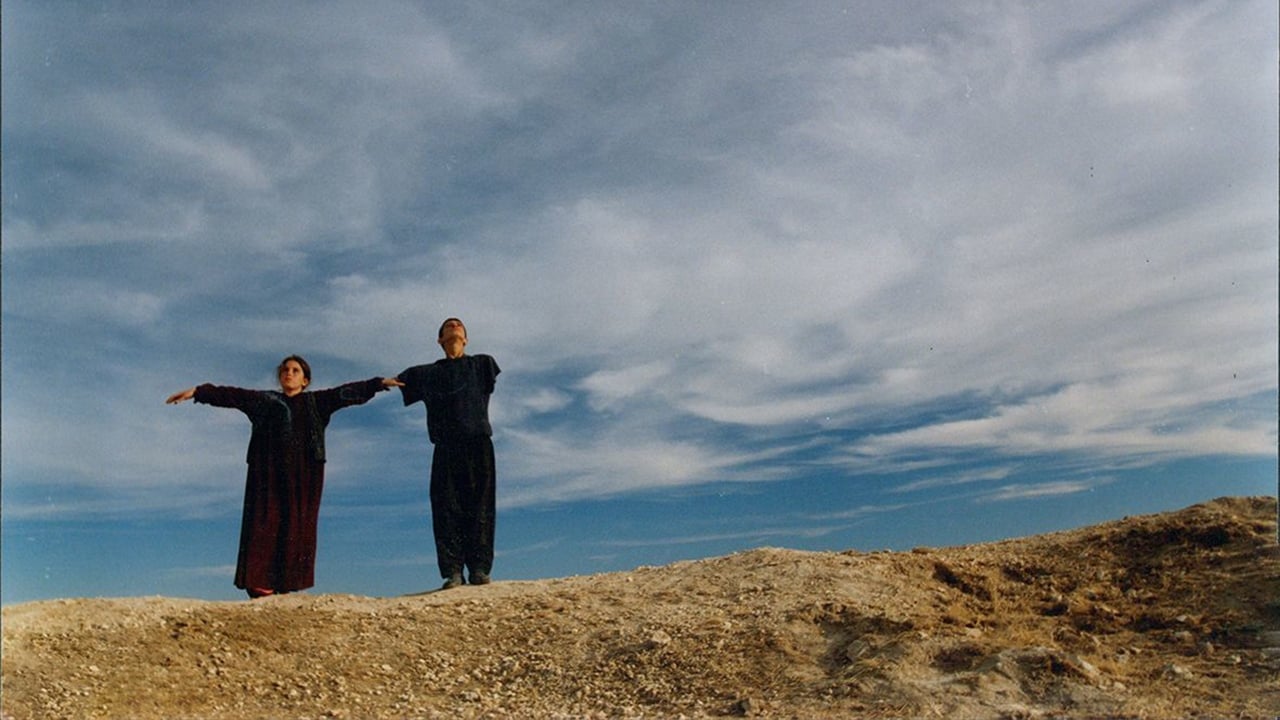
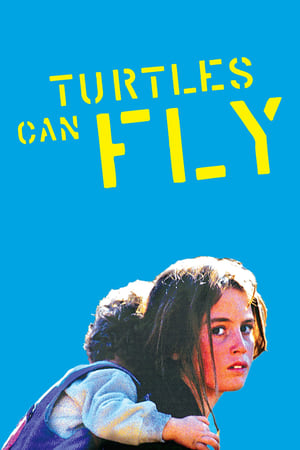
Turtles Can Fly
2005 • 1h 38min • ★ 7.7/10 • Iran
Directed by: Bahman Ghobadi
Cast: Soran Ebrahim, Avaz Latif, Saddam Hossein Feysal, Hiresh Feysal Rahman, Abdol Rahman Karim
Turtles Can Fly tells the story of a group of young children near the Turkey-Iraq border. They clean up mines and wait for the Saddam regime to fall.
“Turtles Can Fly” (Lakposhtha hâm parvaz mikonand) is a 2004 Kurdish-Iranian drama film directed by Bahman Ghobadi. The film is set in the Kurdistan region of Iraq just before the 2003 US-led invasion.
“Turtles Can Fly” centers around a group of Kurdish orphans living in a refugee camp near the Turkish border. The main character, a young boy named Satellite, acts as the de facto leader of the group.
They survive by disarming landmines and selling satellite dishes to fellow villagers, who are eager to know about the approaching war.
The film explores the devastating effects of war on the lives of children and the resilience they display amidst the chaos. It delves into themes such as the loss of innocence, the impact of violence on society, and the struggles faced by displaced communities.
“Turtles Can Fly” received critical acclaim for its powerful storytelling, its raw portrayal of war’s impact on children, and its depiction of the harsh realities faced by those living in conflict zones.
The film won several awards at international film festivals and brought attention to the Kurdish cinema and the humanitarian issues it addresses.
Please note that my knowledge is based on information available up until September 2021, and there may have been subsequent developments or details related to “Turtles Can Fly” that I’m unaware of.
- Amazon Prime Video (Video on Demand)
- Bahman Ghobadi, Soran Ebrahm, Hirsch Feyssal (Actors)
- Bahman Ghobadi (Director) - Bahman Ghobadi (Writer) - Bahman Ghobadi (Producer)
- (Playback Language)
- Audience Rating: PG-13 (Parents Strongly Cautioned)
27. The White Balloon (1995)
“The White Balloon” is an Iranian film directed by Jafar Panahi and released in 1995.
It is a simple yet powerful story that follows a young girl named Razieh, played by Aida Mohammadkhani, on a quest to buy a goldfish for the Iranian New Year celebration, known as Nowruz.
Set in Tehran, the film takes place over the course of a single day as Razieh encounters various obstacles and unexpected events on her journey to purchase the desired goldfish.
Throughout her adventure, she interacts with different characters, each contributing to her experiences and shaping her understanding of the world around her.
“The White Balloon” captures the innocence, curiosity, and resilience of childhood while also providing a poignant commentary on social and economic dynamics in Iranian society.
The film reflects the restrictions and challenges faced by ordinary people, particularly young girls, as they navigate societal norms and restrictions.
Jafar Panahi’s direction in “The White Balloon” is highly regarded, as he skillfully crafts an engaging narrative through a combination of realistic storytelling and subtle symbolism. The film explores themes of determination, trust, and the longing for freedom.
“The White Balloon” received critical acclaim and won numerous awards at international film festivals. It is known for its authenticity, natural performances, and its ability to evoke empathy and emotional resonance in viewers.
The film’s simplicity and universal themes have contributed to its enduring appeal and recognition as a significant work in Iranian cinema.
- Aida Mohammadkhani, Mohsen Kafili, Fereshteh Sadre Orafaiy (Actors)
- Jafar Panahi (Director) - Abbas Kiarostami (Writer) - Foad Nour (Producer)
- Audience Rating: Unrated (Not Rated)
28. The White Meadows (2009)
“The White Meadows” (original title: “Keshtzarhayeh sepid”) is a 2009 Iranian drama film directed by Mohammad Rasoulof.
It tells the story of Rahmat, a man who travels by boat through a mystical and surreal landscape, collecting the tears of villagers as they share their secrets and grievances with him.
In “The White Meadows,” Rahmat, played by Hasan Pourshirazi, visits various islands on his boat, each inhabited by different characters who reveal their hidden stories and sorrows.
The film explores themes of suffering, repression, and the weight of societal norms and expectations.
The islands in the film are depicted as isolated and enigmatic places, representing microcosms of the human condition. As Rahmat listens to the villagers’ confessions and collects their tears, he becomes a witness to their pain and frustrations.
The film delves into the complexity of human emotions, exploring themes of guilt, regret, and the longing for liberation.
Mohammad Rasoulof’s direction in “The White Meadows” creates a dreamlike and allegorical atmosphere.
The film’s visual style is characterized by stunning landscapes and symbolic imagery, emphasizing the contrast between the natural beauty of the surroundings and the emotional turmoil experienced by the characters.
“The White Meadows” received critical acclaim for its poetic storytelling and thought-provoking narrative. It was praised for its allegorical nature and its ability to reflect on universal themes of human suffering and the longing for freedom.
The film was also recognized internationally, receiving awards at various film festivals.
As with many of Mohammad Rasoulof’s works, “The White Meadows” addresses social and political issues while employing metaphorical storytelling techniques.
It serves as a commentary on the repressive nature of Iranian society and the struggles faced by individuals in expressing their true selves.
Overall, “The White Meadows” is a visually striking and emotionally resonant film that invites viewers to reflect on the human condition and the inherent desire for liberation and authenticity.
- Hasan Pourshirazi, Younes Ghazali (Actor)
- Mohammad Rasoulof (Director)
- English (Publication Language)
29. The Willow Tree (2005)
“The Willow Tree” (original title: “Beed-e Majnoon”) is an Iranian drama film directed by Majid Majidi and released in 2005. The film explores themes of identity, self-discovery, and the pursuit of happiness.
The story follows Youssef, a middle-aged man who is blind and has been blind since childhood. Youssef’s life takes a dramatic turn when he undergoes a successful surgery that restores his sight.
As he adjusts to the newfound gift of vision, he embarks on a journey of self-exploration and seeks to reconnect with the world around him.
However, Youssef’s quest for happiness and fulfillment leads him to face unexpected challenges and difficult choices. He must confront the consequences of his decisions and grapple with the complexities of his relationships with his family and society.
“The Willow Tree” delves into the inner struggles of its protagonist as he navigates the overwhelming sensory experience of sight and grapples with his past and present.
The film offers a poignant examination of the human condition and the complexities of personal transformation.
Majid Majidi is known for his humanistic approach to storytelling, and “The Willow Tree” is no exception. The film showcases his sensitive direction, compelling performances, and his ability to capture the emotional depth of his characters.
Please note that “The Willow Tree” is in Persian with English subtitles and may be available on various streaming platforms or through DVD releases with subtitles in different languages, depending on your region.
- Amazon Prime Video (Video on Demand)
- Parvis Parastui, Roya Teymourian, Afarin Obeisi (Actors)
- Majid Majidi (Director) - Fouad Nahas (Writer) - Majid Majidi (Producer)
- (Playback Language)
- Audience Rating: PG (Parental Guidance Suggested)
30. The Wind Will Carry Us (1999)
“The Wind Will Carry Us” is a 1999 Iranian film directed by Abbas Kiarostami. It is widely regarded as one of Kiarostami’s masterpieces and has received critical acclaim for its poetic storytelling and philosophical themes.
The film follows the journey of an unnamed engineer (played by Behzad Dorani) who travels from Tehran to a remote village in rural Iran.
The engineer and his team have come to the village to document a unique funeral ritual that is expected to take place soon. However, they must wait for the death of an elderly woman, which leads to the engineer’s extended stay in the village.
As the engineer waits, he interacts with the locals and becomes involved in their daily lives. Through his encounters and observations, the film explores themes of life, death, time, and the connection between humans and nature.
The natural landscape and the passage of time are central elements in the film, symbolizing the transient and cyclical nature of existence.
“The Wind Will Carry Us” is known for its contemplative pacing, beautiful cinematography, and poetic dialogue. Kiarostami’s signature minimalist style and his ability to capture the subtleties of human interaction are evident throughout the film.
It prompts viewers to reflect on deeper philosophical questions and invites interpretations of its metaphorical layers.
The film received numerous awards and nominations, including the Silver Lion at the Venice Film Festival. “The Wind Will Carry Us” stands as a testament to Abbas Kiarostami’s mastery as a filmmaker and his ability to create profound and visually captivating cinema.
- Polish Release, cover may contain Polish text/markings. The disk has English audio.
- English (Subtitle)













![The Green Wave [DVD] [2010]](https://m.media-amazon.com/images/I/51fRusxyWIL.jpg)


![Marooned in Iraq [DVD]](https://m.media-amazon.com/images/I/41Qfv1RuhZL.jpg)










![The White Balloon [VHS]](https://m.media-amazon.com/images/I/210X9V7ZSRL.jpg)


![The Wind Will Carry Us [1999] [DVD]](https://m.media-amazon.com/images/I/51IVgXV3-+L.jpg)
